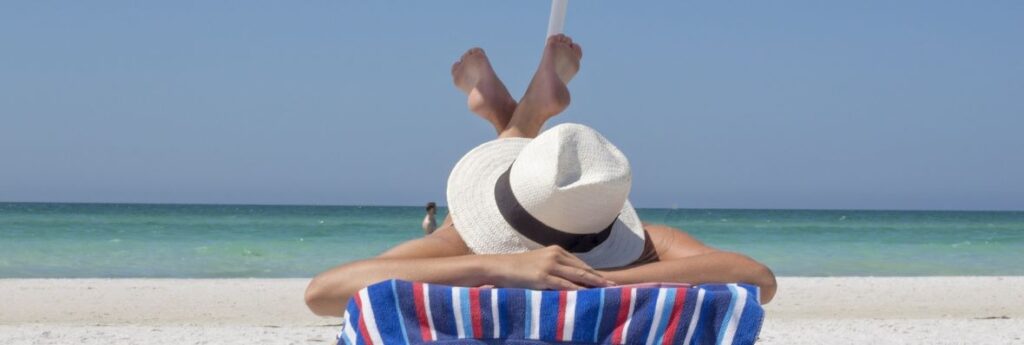Not unlike the Seinfeld episode where George and Jerry pitch a TV show about “nothing” – new research from Expedia reveals the typically over-scheduled end-of-year holiday season has prompted many Canadians to plan a “nothing-cation,” where only warm weather and relaxation are the main attractions.
According to a survey of 3,500 Canadian travellers conducted Dec. 21-Jan. 4, almost half (43%) report that December is the hardest and most stressful month of the year, and nearly everyone surveyed (93%) plans to spend a portion of their next trip doing absolutely nothing.
Expedia internal data confirms January is one of the top months for researching and booking beach vacations, which is a favourite trip type for nothing-cationers. On average, about a quarter of getaways planned during the first month of the year are to beach destinations, and many hotspots including Cancun, Riviera Maya, Punta Cana, and Oahu are already seeing double-digit increases in demand compared to the same time in 2019.
“There’s a time and place for an action-packed vacation itinerary, but our data shows the first trip after the hectic holiday season is not it,” says Melanie Fish, head of Expedia Group brands public relations. “For most travellers, getting the most out of their next vacation means doing less and setting aside dedicated time for nothing…”
When nothing is really something:
According to Expedia’s research, 35% of travellers say they like to start off the new year with a trip on the calendar to look forward to, as a remedy to escape the cold and rainy weather (34%) in January. Furthermore, most (79%) agree that a vacation is good for their mental health and that after “doing nothing” on vacation, they feel refreshed and recharged (68%).
Trade tips
At the same time, Expedia has aggregated insights from industry professionals when it comes to bookings, with its data showing that more than 60% indicate clients are choosing travel options aligned with their personal values such as sustainability, inclusivity, and accessibility.
Other touchpoints from the data, beyond appealing to travellers’ desire for a change in scenery, relaxation, and rejuvenation, include:
• Flexibility, including refundable rates and cancellation policies, continues to be one of the top considerations for travellers, particularly those travelling internationally.
• Customers may be more price sensitive now than they were a year ago, so complimentary add-ons, discounts for advanced booking, loyalty programs and travel packages are effective tactics to help close the sale. Access to specific amenities may be more of a draw for business travellers, who can be convinced to stay for leisure as well.
• A third of industry professionals say they are promoting specific company values or priorities to encourage bookings from their key traveller audiences by showcasing special accessibility amenities, reduction in environmental impact, and other inclusive practices. Consumers indicated they will continue to book based on their personal values and will be loyal to the destinations and businesses that walk the walk in these key areas.
• Just over half of the organizations in the research relied on customer reviews to measure the guest experience, and the same amount make changes often due to feedback – meaning there is a big opportunity for more businesses in the travel space to be taking advantage of feedback loops. A positive travel experience attracts loyal customers.

